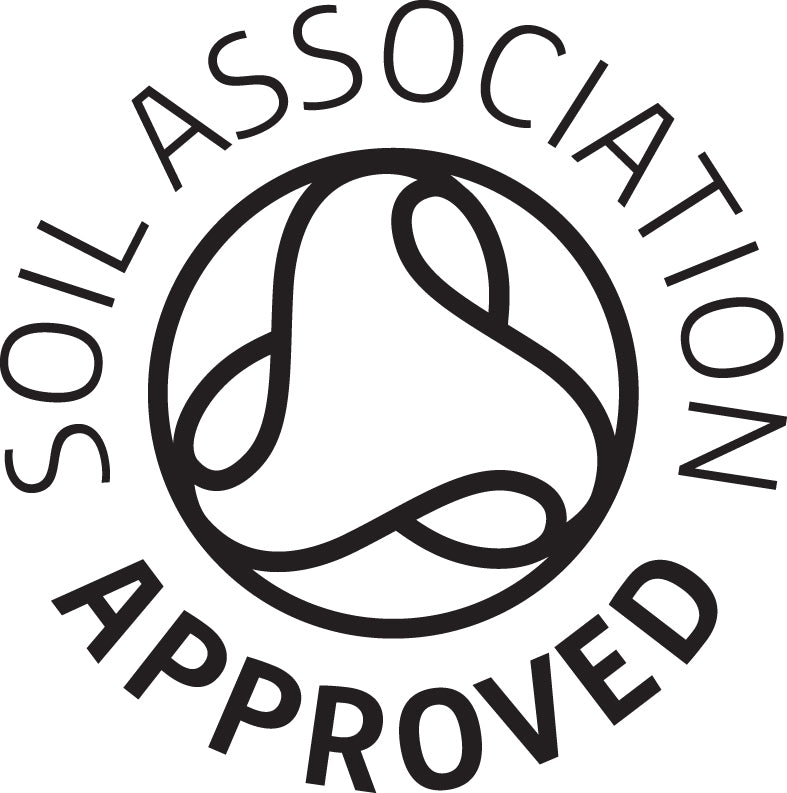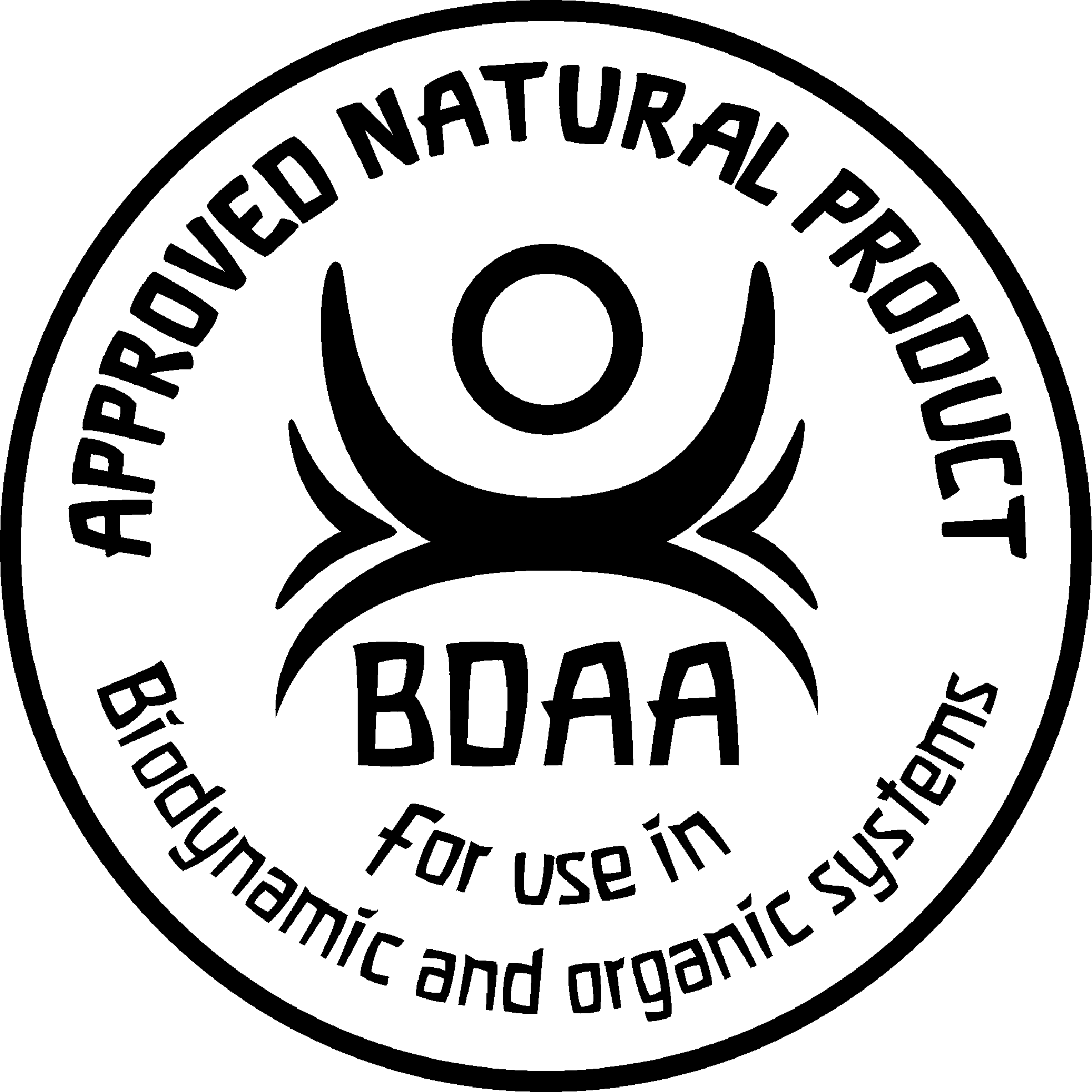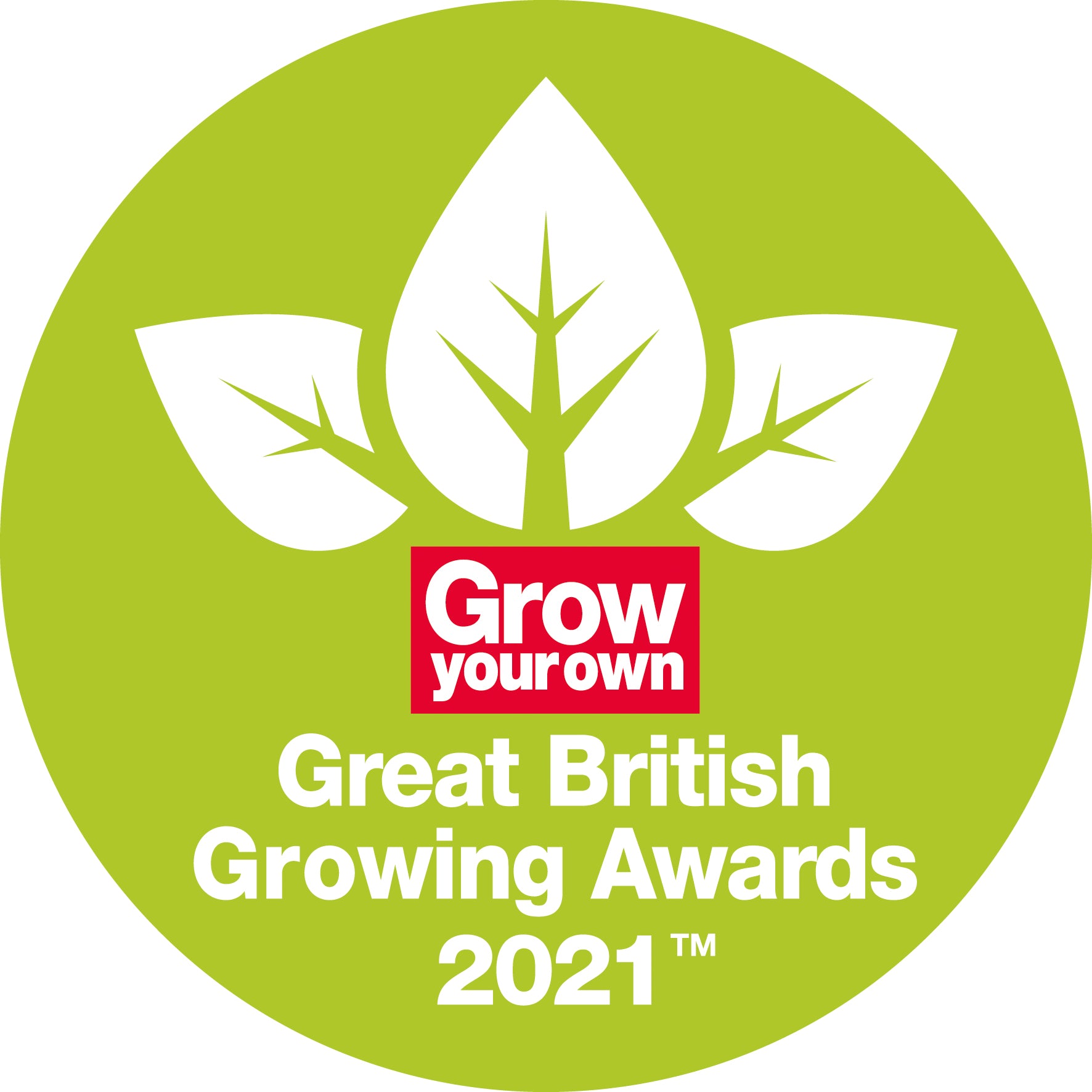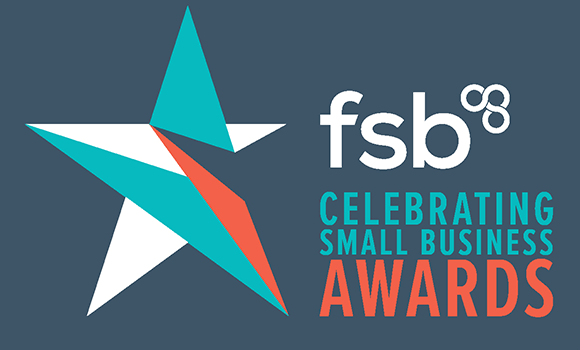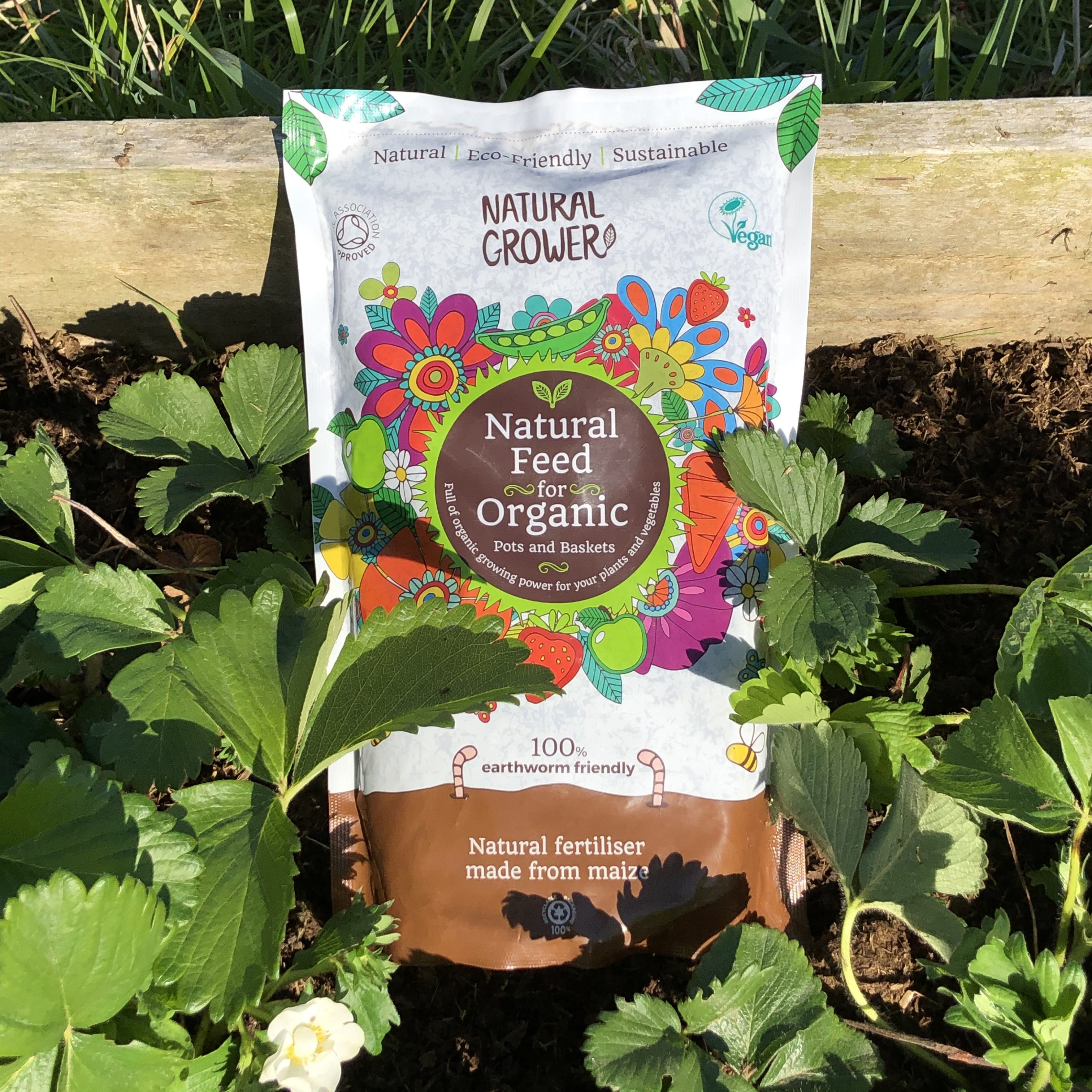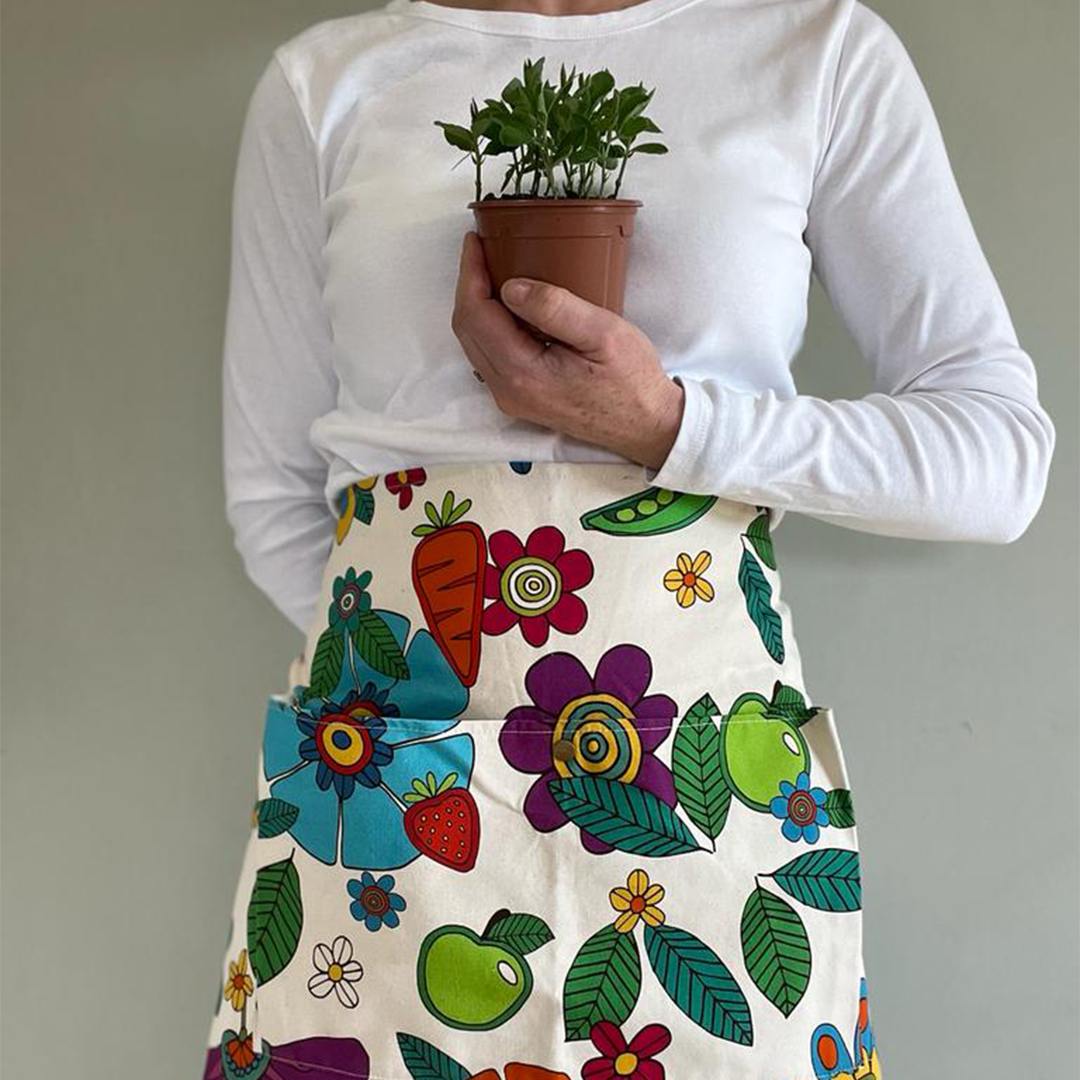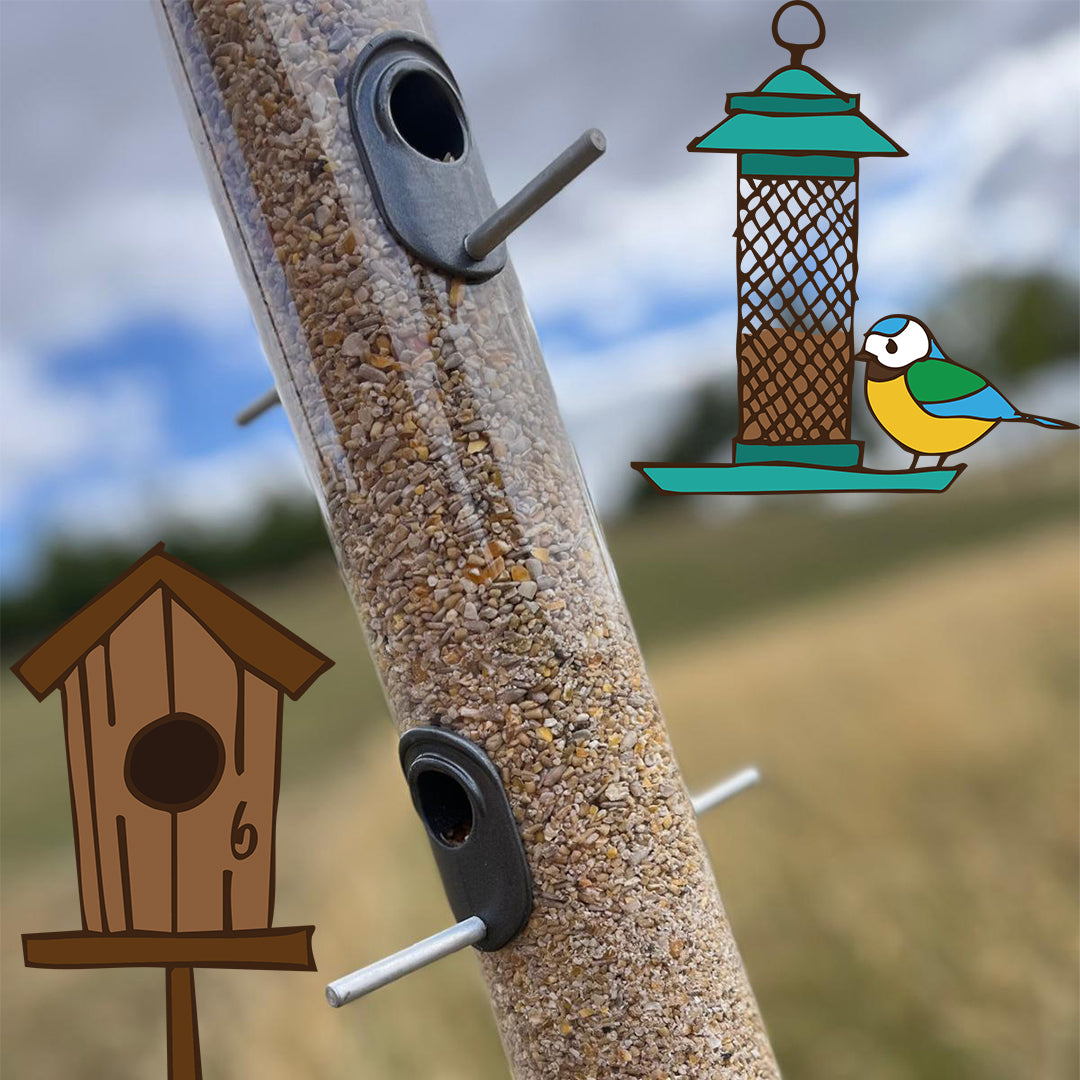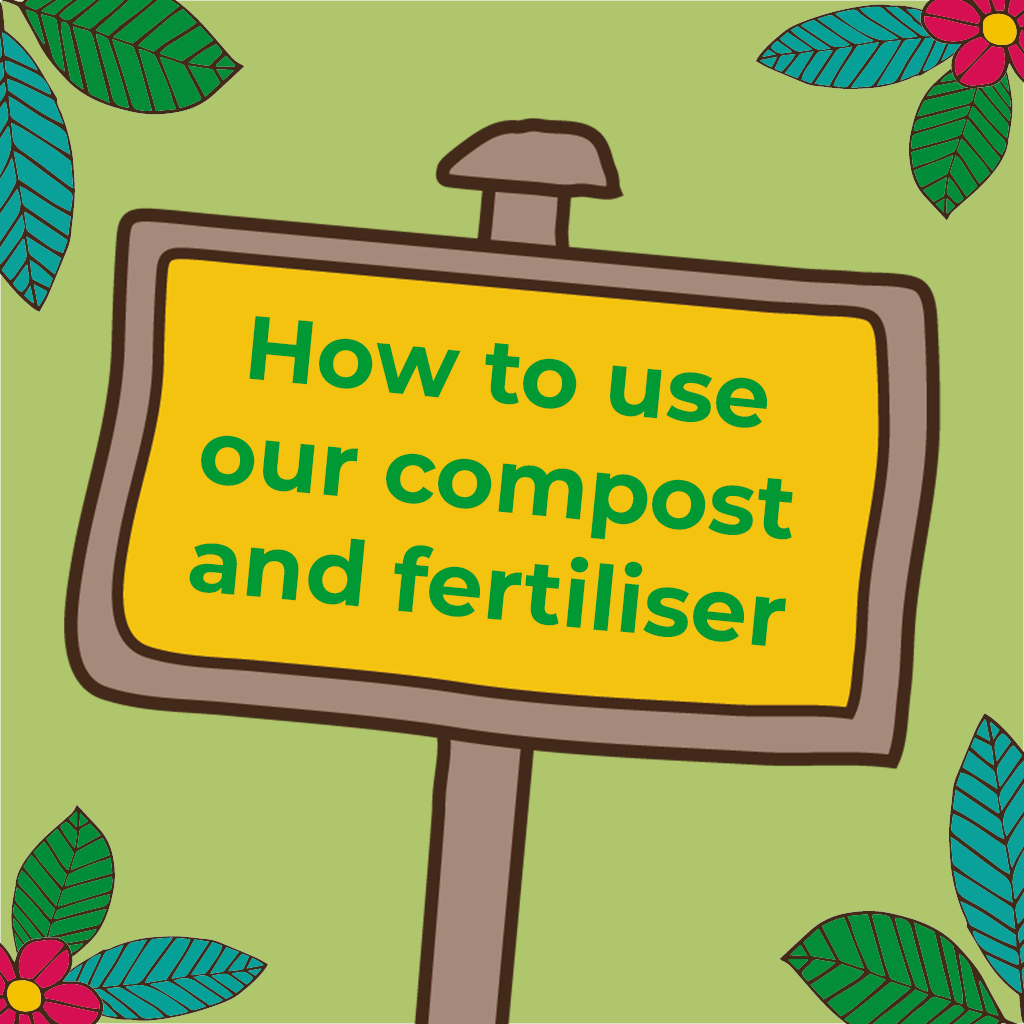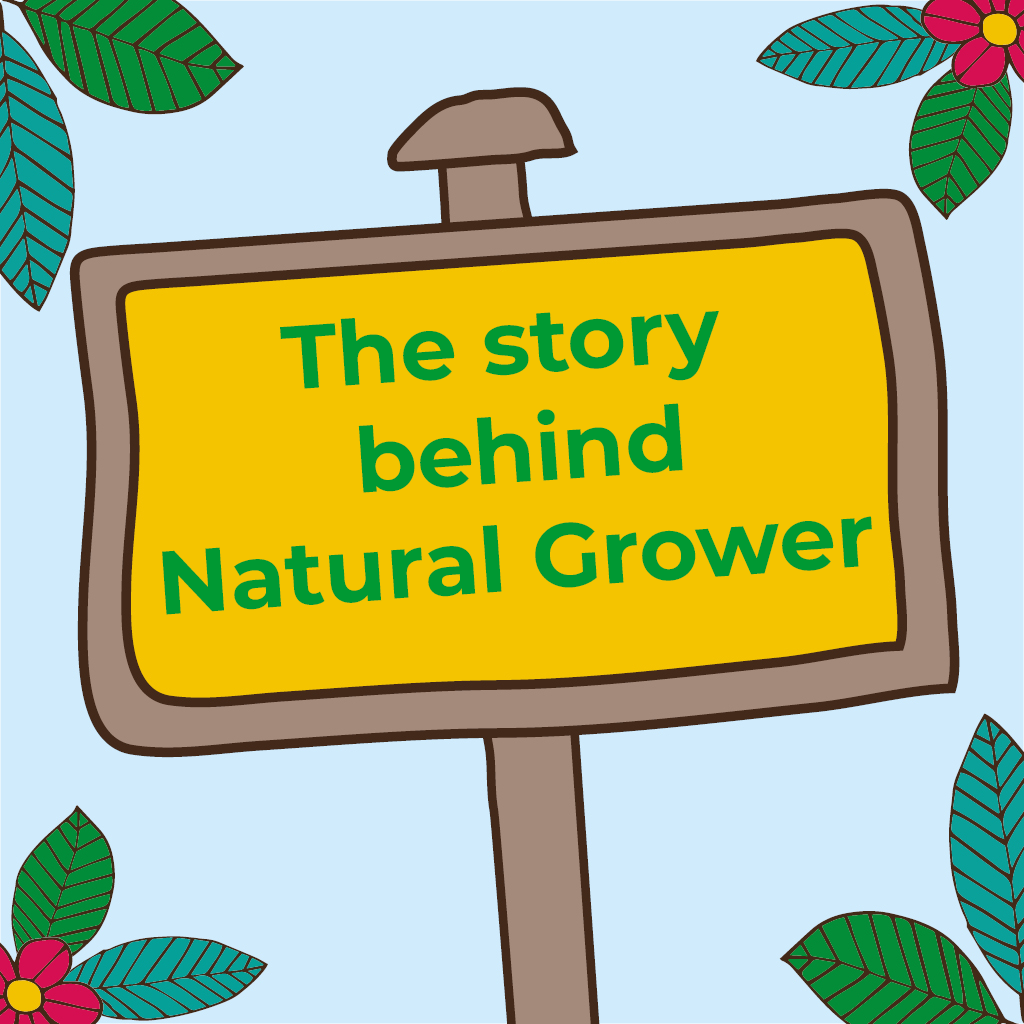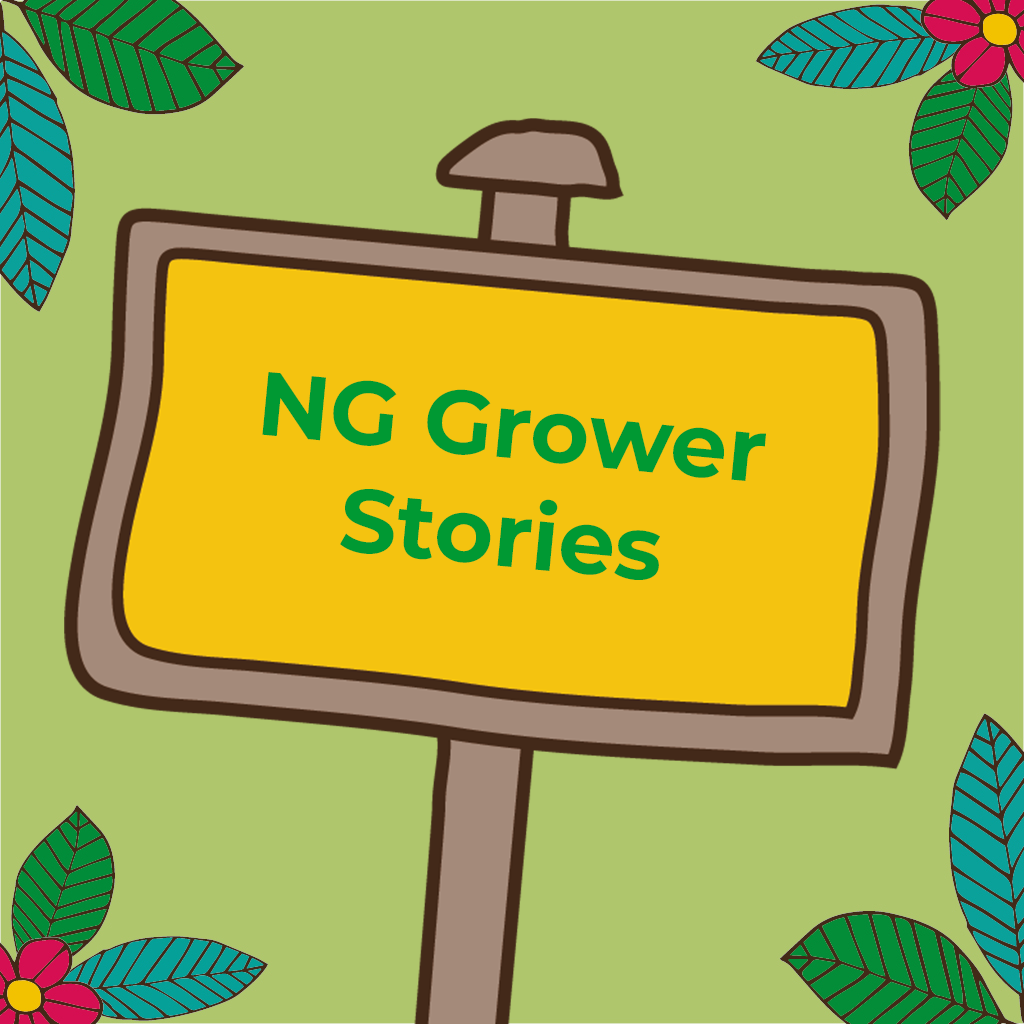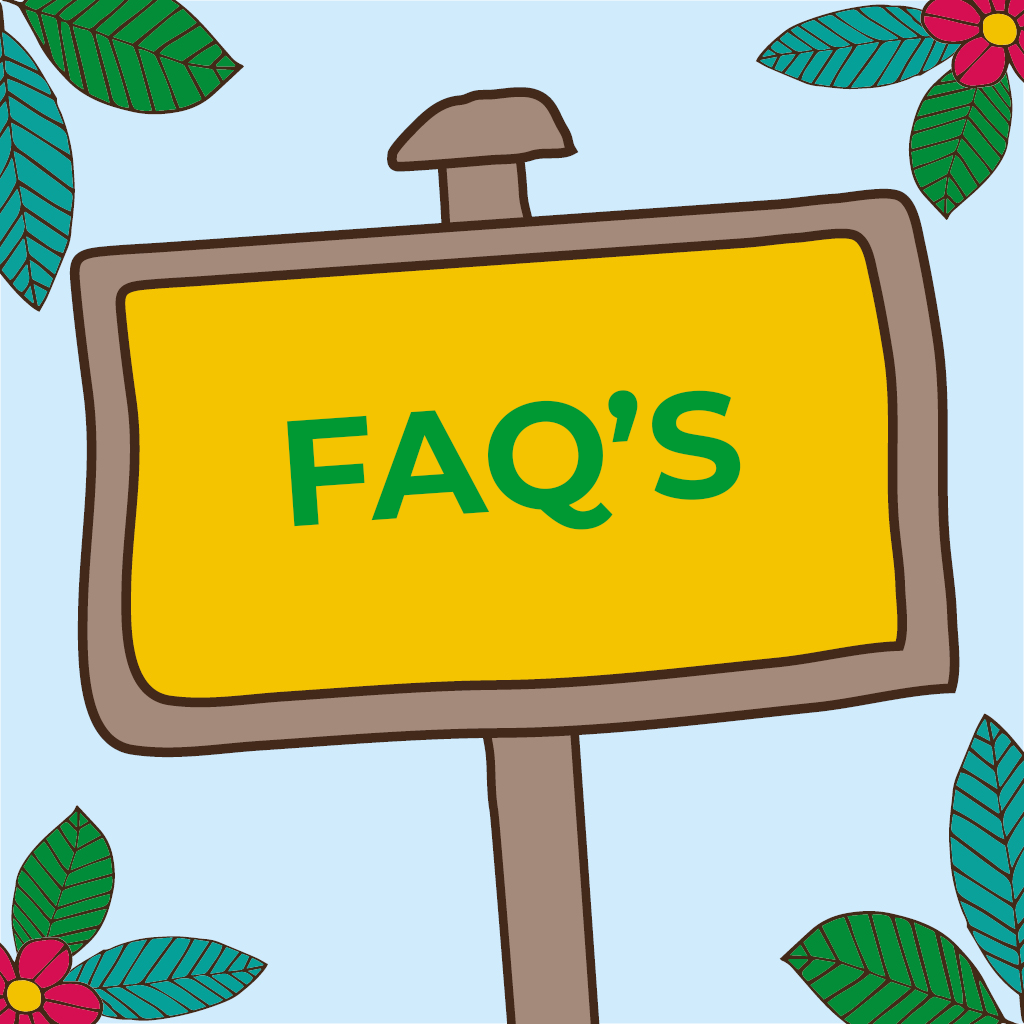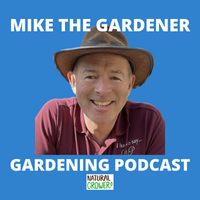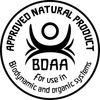Fruit and Vegetables
What fruit and vegetables can I feed with Natural Grower fertiliser?
NG products can be used to feed all fruit and vegetables. The products have balanced, consistent levels of nutrients (NPK) and trace elements, and are Ph neutral. This means they can also be used to feed acidic loving plants.
Can I use the organic fertiliser to feed Blueberries?
Blueberries like acidic conditions. The NG fertiliser is Ph neutral, so wont adversely affect the acidity of the compost or soil the blueberries are growing in. So, yes our products can be used to feed Blueberries. In fact, if you dilute the concentrated liquid with rainwater, you will make the feed slightly acidic, which will top up the acidic levels in the soil or compost.
Can I feed my strawberries with the fertiliser?
Yes, all soft fruits can be fed with NG products: strawberries, raspberries, black and red currants, gooseberries, plums, cherries, apples, figs, grapes…… the list is endless!
Can I feed my tomatoes with the fertiliser?
Yes, tomatoes grow incredibly well with the fertiliser. Independent trails have been carried out by Instagram gardeners and the NG products have proved to be as effective if not better than chemical fertilisers like Tomorite. Keep what you eat organic!
Can your organic fertiliser be used in a hydroponic growing system?
Yes the liquid fertiliser can be used in hydroponic growing systems. The only time it may not work would be if you have fine filters in the system, as the small particles of organic matter that are in the liquid would soon block the filter.
Can I use your compost for seedlings?
Our compost is a multi-purpose compost. You can grow seeds in the compost, but we would advise when sowing very small seeds like tomato or cornflowers, that you cover them with our compost that has been sieved or some coir. This will mean that the small seedlings dont have to push past some of the larger pieces of organic matter in the compost.
Trees and hedge plants
Can I use your fertiliser to feed my Acer tree?
Yes you can use the organic fertiliser in liquid or mulch form to feed your Acer tree. Ideally mix some of the soil conditioner into the soil when planting and then apply the mulch around the tree each spring. This will give your Acer a slow-release feed all year.
I am planting a new hedge, can I use your soil conditioner with hedging whips or will it be too strong?
You can use our soil conditioner when planting hedging whips and all bare rooted trees or hedging. Mix some in to the soil and place at the bottom of the hole and then continue to add a mixture of the conditioner and soil around the root ball. Apply a mulch of the conditioner on the surface of the soil around the hedge. With a balanced NPK it will get your new hedges off to a great start improving plant health, quality and strength.
Roses and flowering plants
Can I use Natural Grower to feed my roses?
Yes, roses grow incredibly well with the liquid and mulch feed. You can add some of the mulch feed when planting the roses and then feed with the concentrated liquid diluted in a watering can through the summer to encourage repeat flowering.
Can I use the fertiliser for mixed flower beds?
All flowering plants, whether annual or perennial love Natural Grower fertiliser. Organic fertiliser provides all the natural nutrients and trace elements that all flowering plants need, so your plants will thrive on it.
Can I apply the liquid fertiliser as a foliage feed?
Yes you can, but if it has a fine filter you may find that the small particles of organic matter that are in the liquid will eventually block the filter. You will either need a sprayer without a fine filter or use a watering can with a coarse rose on it.
Will the liquid fertiliser burn the leaves of my plants?
No, the organic fertiliser does not burn leaves like chemical fertilisers can. Our fertiliser is a natural product and doesn’t harm your plants in any way. Chemical fertilisers are generally very high in nitrogen and over application or contact with the leaves can cause the leaves to turn yellow or brown and wither away (chemical leaf scorch).
Can I use your organic fertiliser to feed my hydrangea, rhododendrons and azelas?
Yes you can use our liquid fertiliser and our soil conditioner to feed your hydrangea, rhododendrons and azelas. You can apply a mulch of the soil conditioner around the base of the plants for a slow release feed and give a regular top up feed with the liquid fertiliser. If you have a water butt, diluting the liquid feed with rainwater will make the liquid feed slightly acidic. If you don’t have access to a supply of rainwater then tap water will be fine as the fertiliser is Ph neutral.
Lawns and amenity surfaces
Can children and pets go on the lawn after it has been treated with Natural Grower fertiliser?
Yes they can, although we would recommend keeping them off it for 24 hours to allow the liquid to soak in or the conditioner to work its way down to the grass roots. If they do go on it however, there is nothing to worry about as the product doesn’t contain any chemicals.
Can I apply Natural Grower Soil Conditioner at the same time as new grass seed?
Yes you can and we would recommend doing this to provide the grass seeds with protection from cold weather, to help retain moisture and to provide nutrients to the grass as it starts growing. Sprinkle the soil conditioner over the grass seeds as a thin layer.
Is it a good idea to mix soil conditioner in to the soil before laying turf?
Yes it is, as it will provide a slow-release feed to the turf, to help the roots develop and establish quicker. It will also help to retain the moisture around the roots which is important with new turf to stop the roots from drying out.
Can I use your liquid fertiliser on newly laid turf?
Yes you can. The liquid is well balanced and with give your new turf all the nutrients it needs to recover from being transplanted to the new site and start sending down roots in to the soil.
Can I apply your liquid fertiliser to grass with a sprayer?
Yes you can, but if it has a fine filter you may find that the small particles of organic matter that are in the liquid will eventually block the filter. You will either need a sprayer without a fine filter or use a watering can with a coarse rose on it.
When should I fertilise my lawn?
Our organic liquid feed can be used to fertilise your lawn throughout the year. Your grass will be dormant between December and February, so there is no need to feed during this period. You should feed monthly from March onwards so there is a good supply of nutrients for the grass as it starts its main period of growth in April. Continue to feed monthly throughout the summer so the grass is strong and healthy with a good root structure to be able to cope with the hot weather and droughts. Continue to feed until the end of November so the lawn has all the nutrients it needs to get it through the cold winter days and frosty nights.
Houseplants
Can I use your organic compost to re-pot my houseplants?
Absolutely, yes you can. Our compost is an all purpose compost, so you can use it for all your houseplants and outdoor plants.
Supplement the nutrients through the year with our liquid fertiliser. You can also mix in some of our plant feed available in pouches, tubs or bags, to give a lovely slow-release feed.
Can I use Natural Grower Fertiliser to feed houseplants?
Yes, NG organic fertiliser can be used to feed your houseplants. Both the concentrated liquid and the plant feed mulch can be used.
Mix the mulch in with your compost when replanting into bigger pots. This will give a slow-release feed and help to retain the moisture.
You can pour the liquid around the base of the plants, or even better is bottom watering your house plants, by standing the pot in a bowl of the diluted fertiliser. The liquid will be absorbed up in to the pot.
Can I use your organic fertiliser to feed my cactus plants?
Yes the fertiliser is great for cactus plants and succulents. It is a balanced fertiliser that is completely natural and made from plants, so all plants both indoor and outdoor benefit from it.
Does your organic fertiliser have a use by date?
The liquid fertiliser does not have a use by date. Just give it a shake if you leave it sitting for a while to mix in all the lovely small bits of organic matter that will have settled to the bottom. The soil conditioner also does not have a use by date, but over time will develop more of the wonderful natural fungi that it contains. You can still use the soil conditioner if you see fungi developing in it, as the fungi help to break down the soil conditioner, which in turn improves the soil health and increases your plants ability to absorb nutrients.
Fungus Gnats are attracted to my houseplants, what can I do?
I think everyone will be familiar with fungus gnats appearing from nowhere as soon as fruit starts to go off – where do they all suddenly come from??! If you have fungus gnats appearing around your houseplants it’s a great (although understandably annoying) indication that your potting mixture contains a lot of lovely rich organic matter. The first thing you should do is bottom water your plants rather than watering from the top. This will keep the top inch layer of your pot dry. Gnats like to lay their eggs in moist compost, so keeping the top layer dry will stop them laying eggs. Another natural way to get rid of the gnats is to sprinkle over the entire top layer of the compost in your pot with Ceylon cinnamon. The cinnamon will quickly kill any larvae as they eat it. You can also use sticky stakes to trap the gnats before they lay any eggs. The combination of these three actions will get rid of all the fungus gnats.
Soil, Compost & Fertiliser
I am creating a no-dig bed, which product should I use?
If you are creating a bed on established lawn or topsoil, we would recommend you put a 50/50 mixture of our soil conditioner and compost on top of cardboard.
If you are creating a raised bed, we would recommend you fill it with a 50/50 mixture of good quality top soil and our soil conditioner.
If you are using containers, we would recommend a 50/50 mixture of our compost and soil conditioner.
Using our soil conditioner for all the bed types above will provide the slow release nutrients your plants will need through the growing season, and also help to retain the moisture.
What is the pH level of your liquid feed?
The pH level of all our products: compost, plant feed and soil conditioner and the liquid feed is pH neutral.
You can make the liquid feed slightly acidic by mixing it in to rainwater, for your acidic loving plants.
What is the NPK value of your products?
Our liquid fertiliser has an NPK of: 3.6 – 1.5 – 3.7
Our plant feed and soil conditioner has an NPK of: 4.1 – 2.2 – 3
Composts are not required to declare an NPK value as they are not a feed. This is also due to most composts being made from varying ingredients and their nutritional value changing. Our compost is made from fully traceable, consistent ingredients, and contains our plant feed and soil conditioner. As it is a consistent product and we test each batch, we can confirm it has a well balanced NPK.
Children, wildlife and pets
Are your organic fertiliser products safe to use around children and pets?
Yes they are safe. They are free from chemicals. Dogs may be attracted to the smell of the soil conditioner and show an interest in eating it. If they do, mix it in to the top part of your soil rather than using it as a mulch. If using it as a mulch you can sprinkle on some garlic to discourage them from eating it. Should they eat the mulch, then it will be no different to them eating something like horse manure, and may just cause a bit of wind or if they eat a lot of it give them an upset tummy.
I have a lot of wildlife in my garden, are your products safe for them?
Yes our products are safe for all wildlife. Free from chemicals and completely natural, our products work with the natural eco-system and do not pose any risk to wildlife.
Are your fertiliser products safe for worms?
Yes our products are 100% safe for worms. Worms are an incredibly important part of the soil eco-system, and our soil conditioner and liquid feed play a very important role in improving soil health and increasing the worm population.
Get in touch
Have questions about your order, or a general enquiry?
Endorsed by
